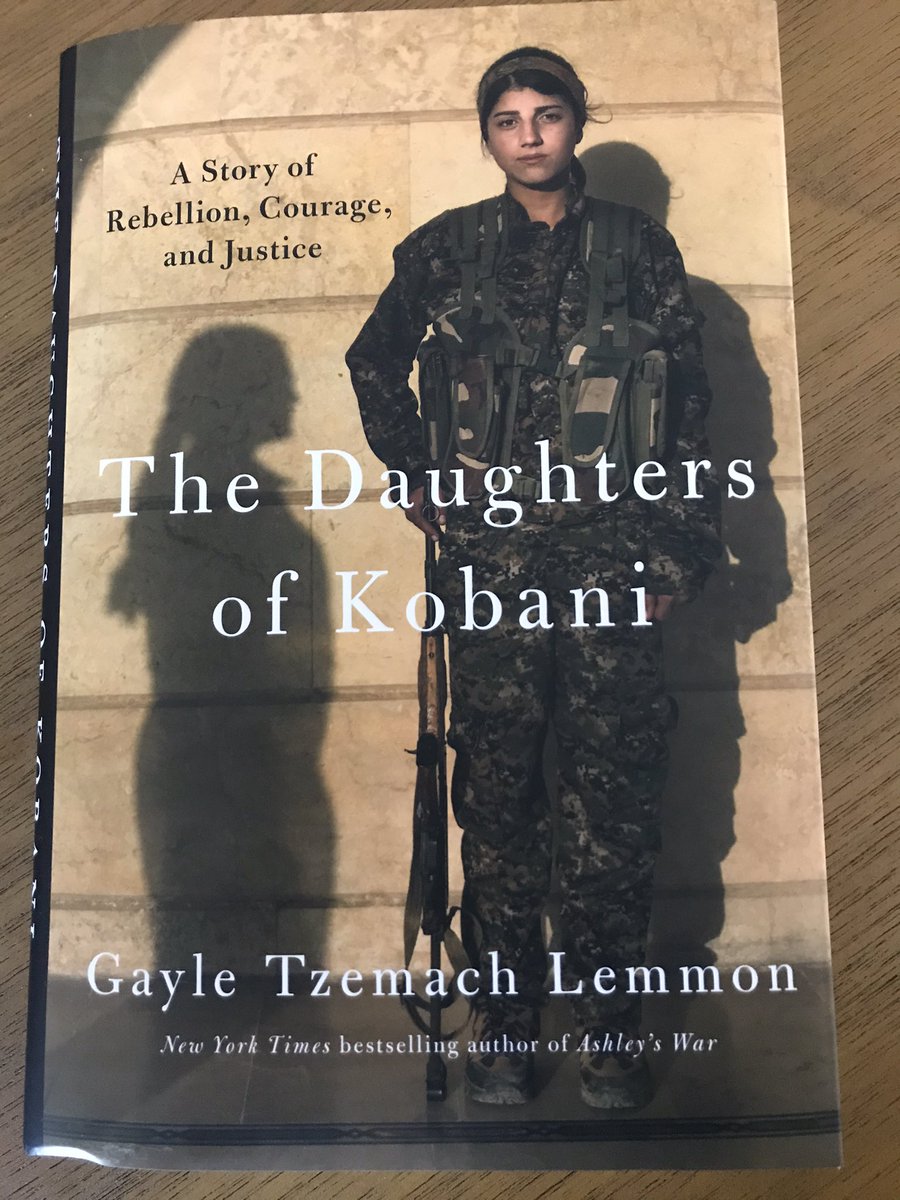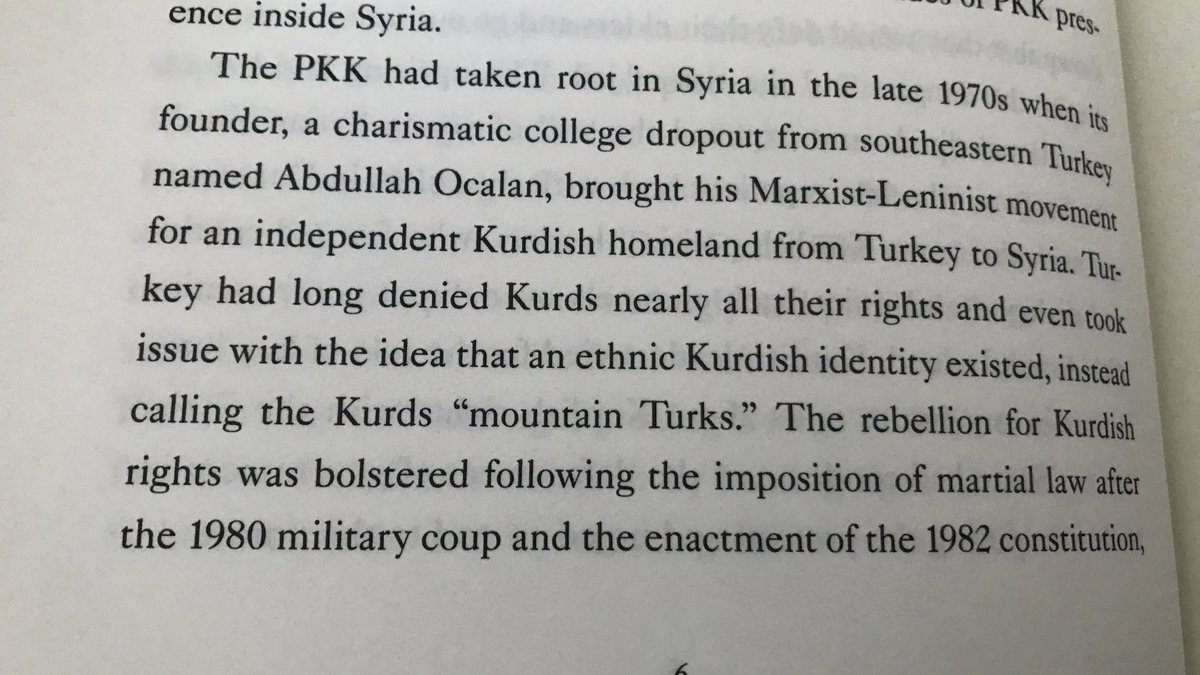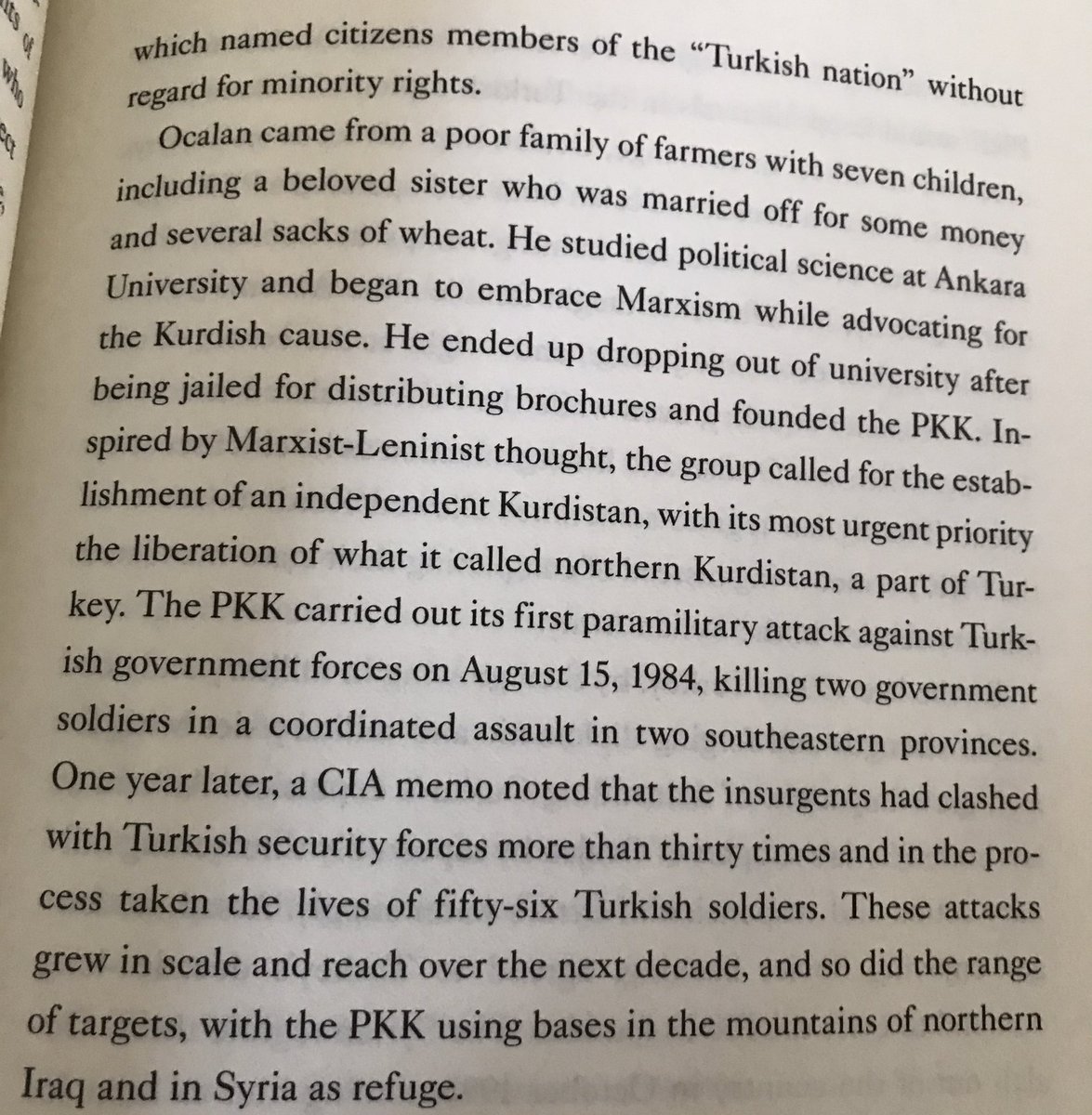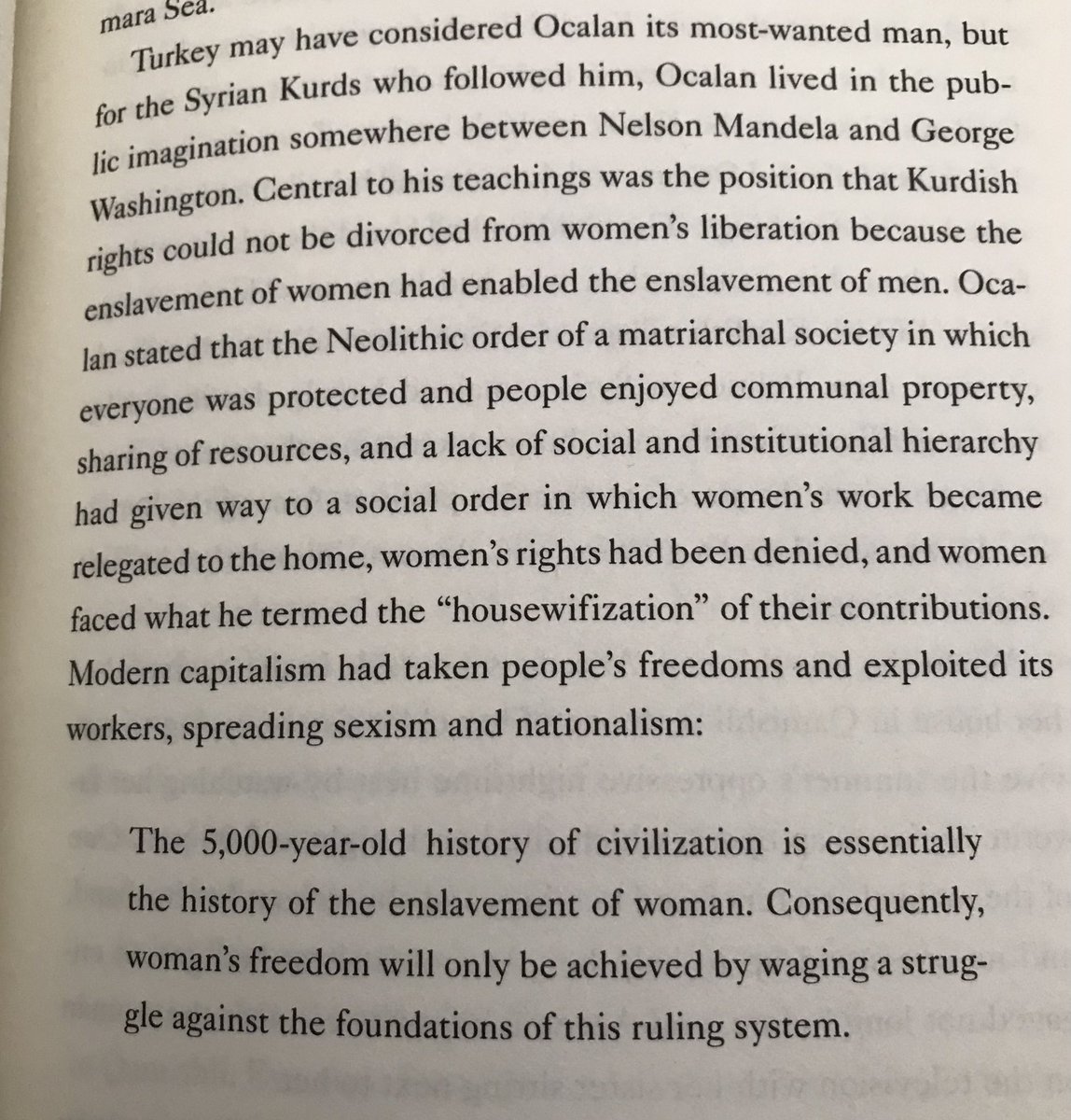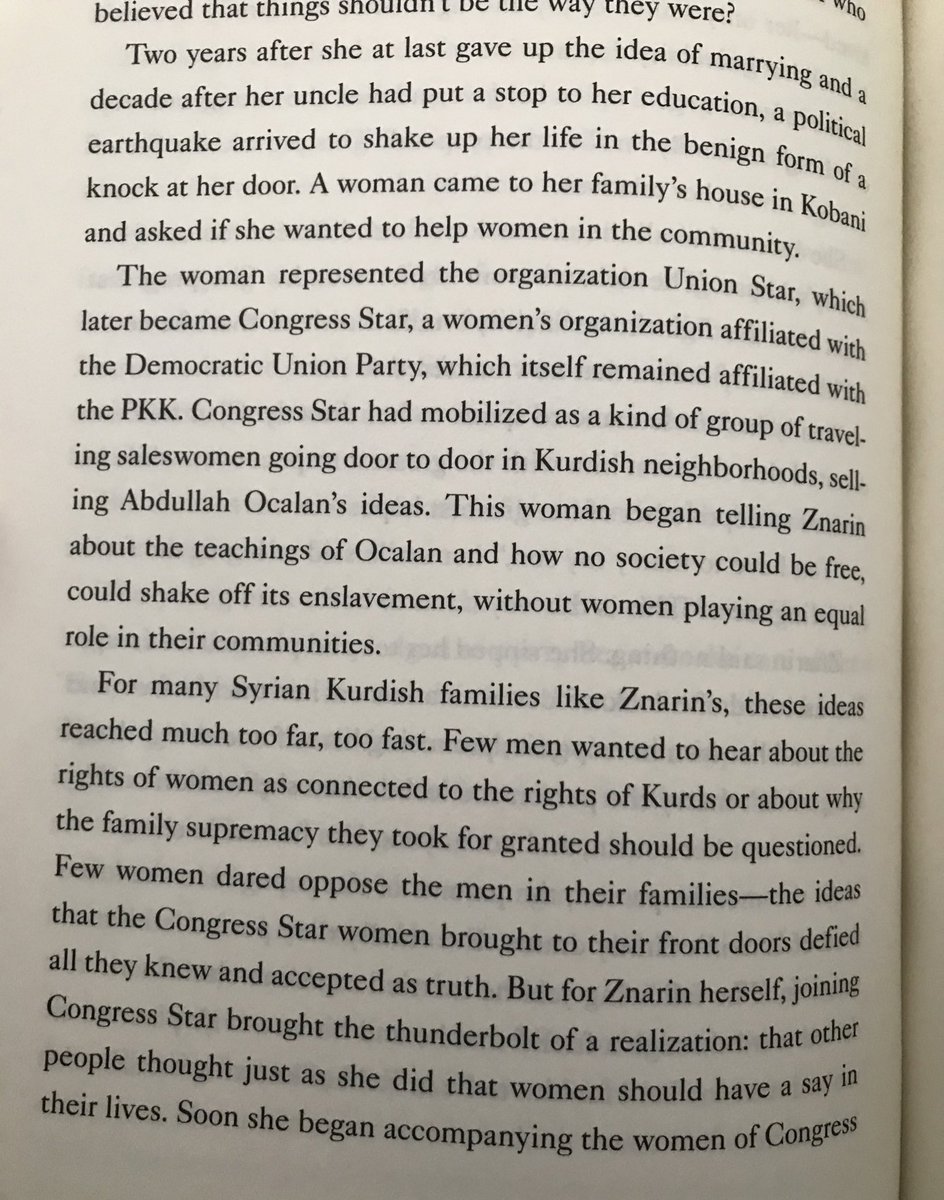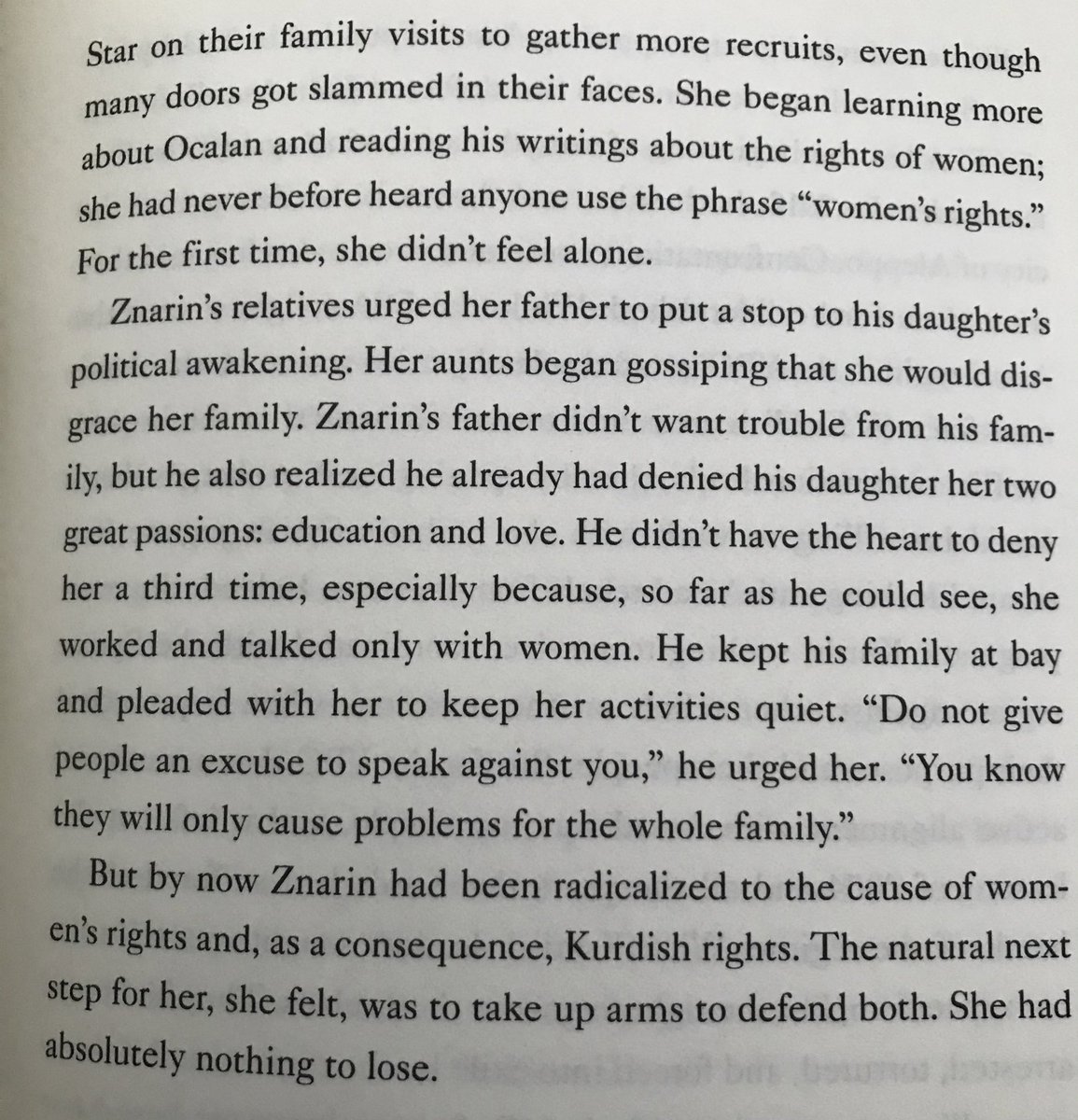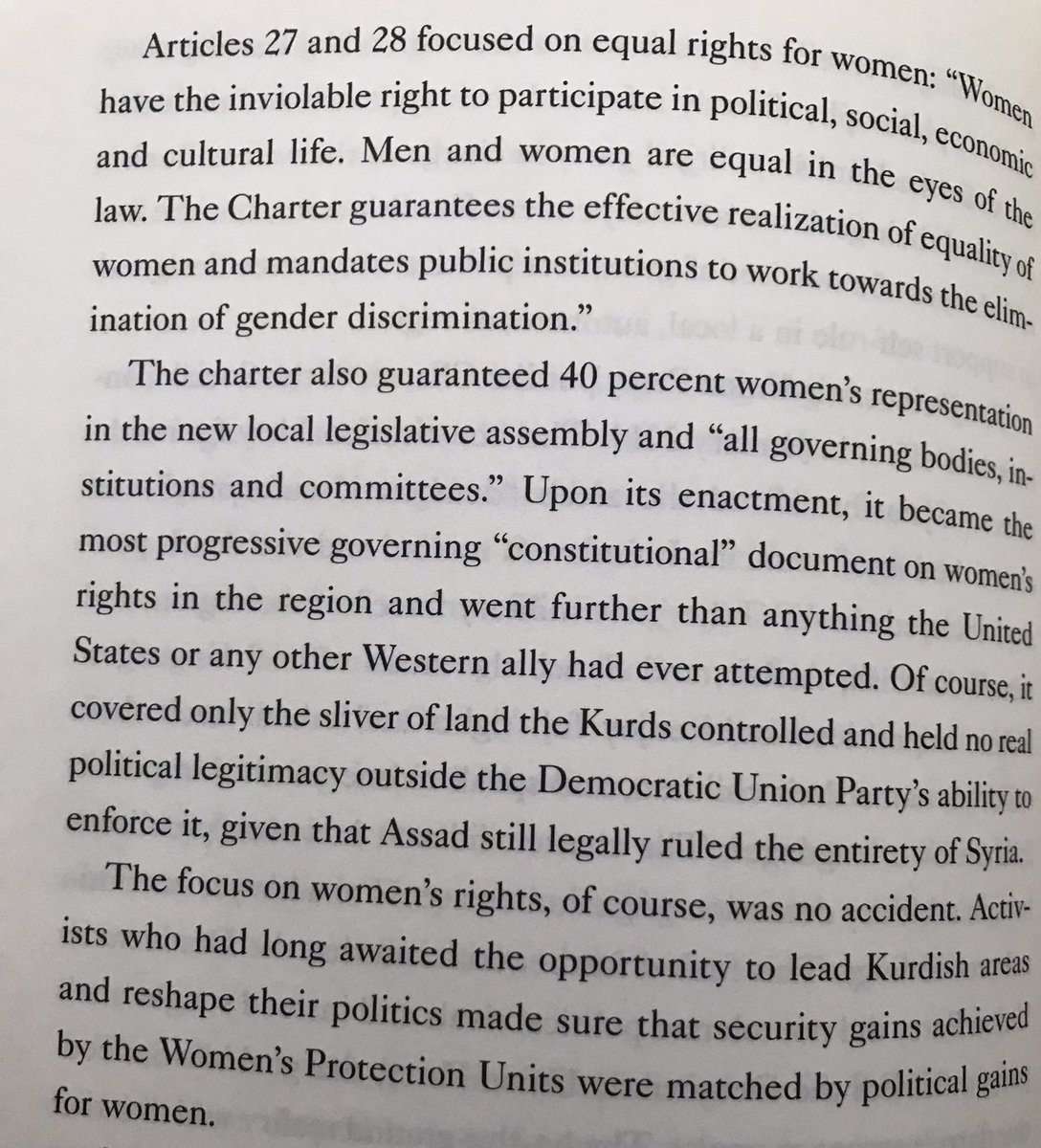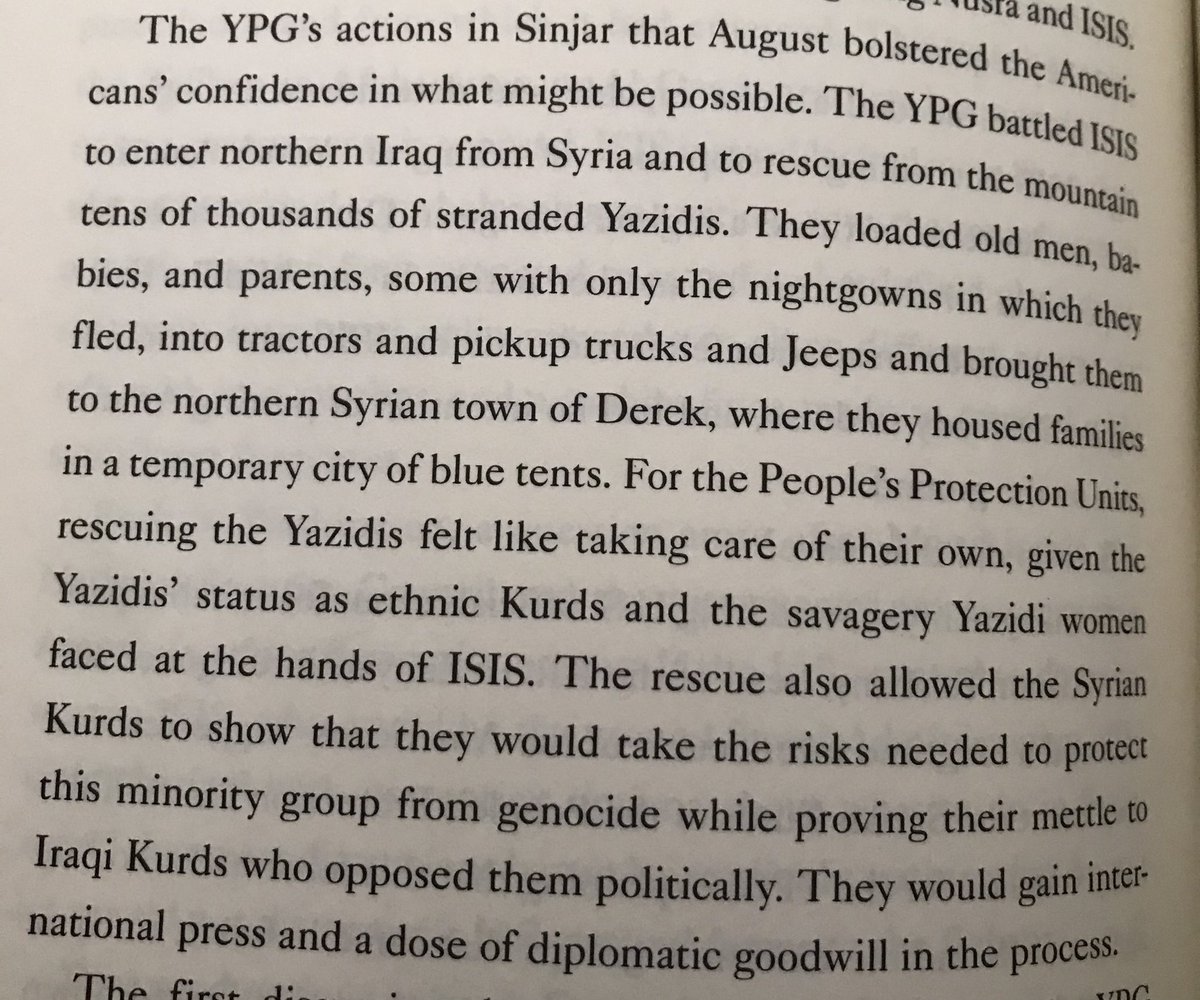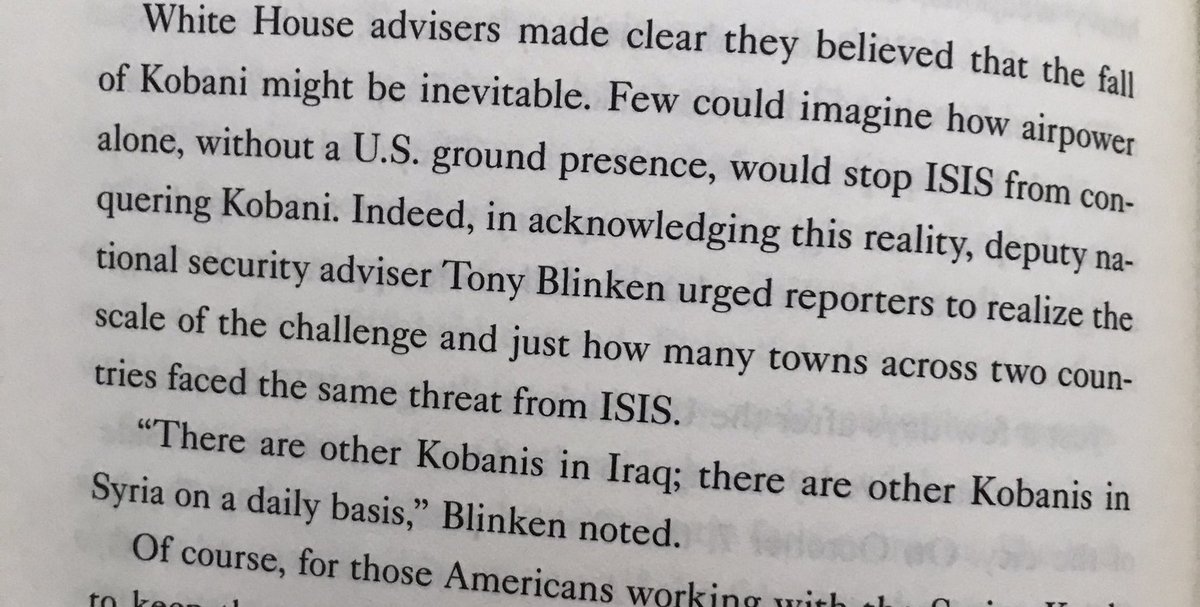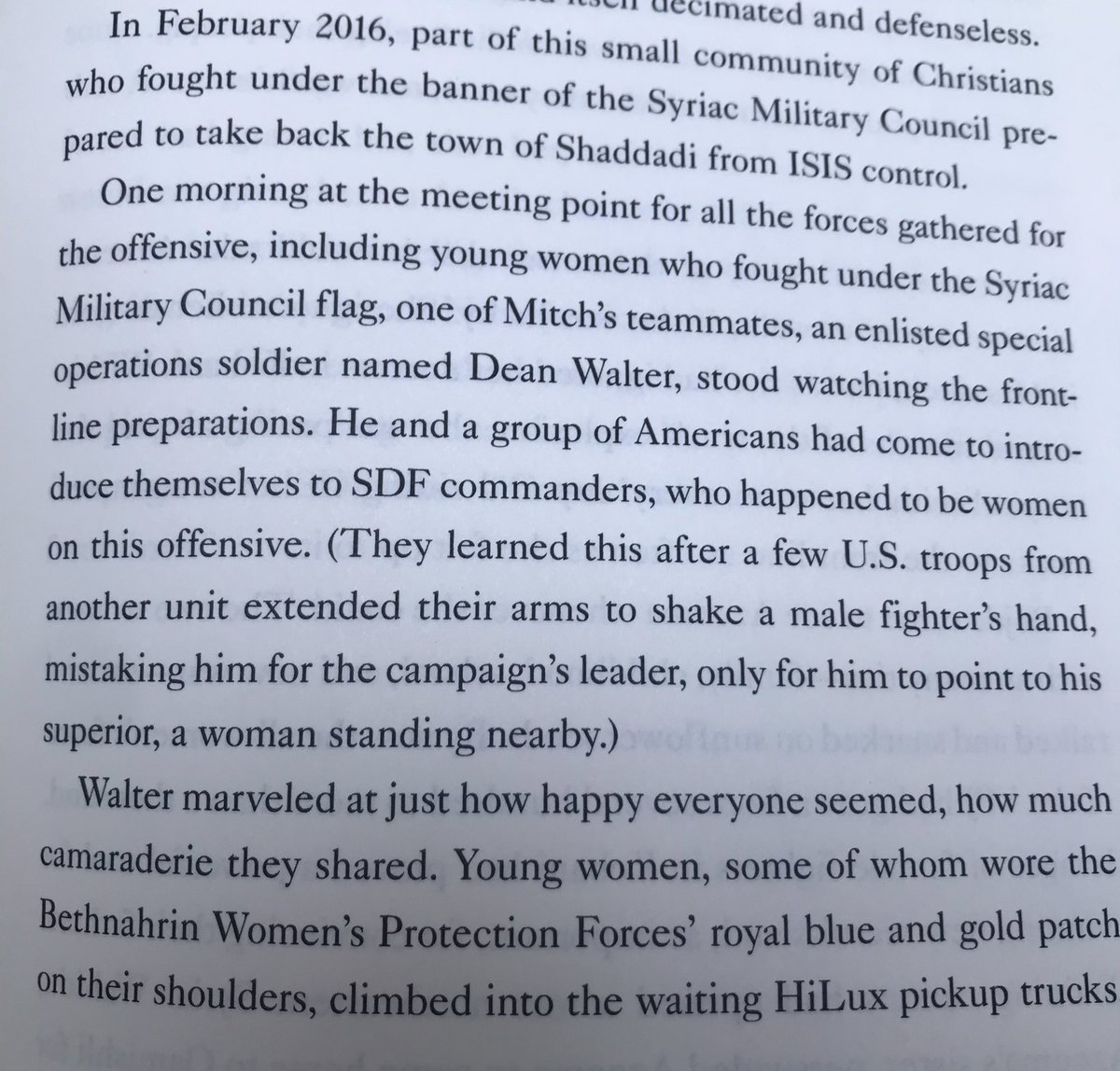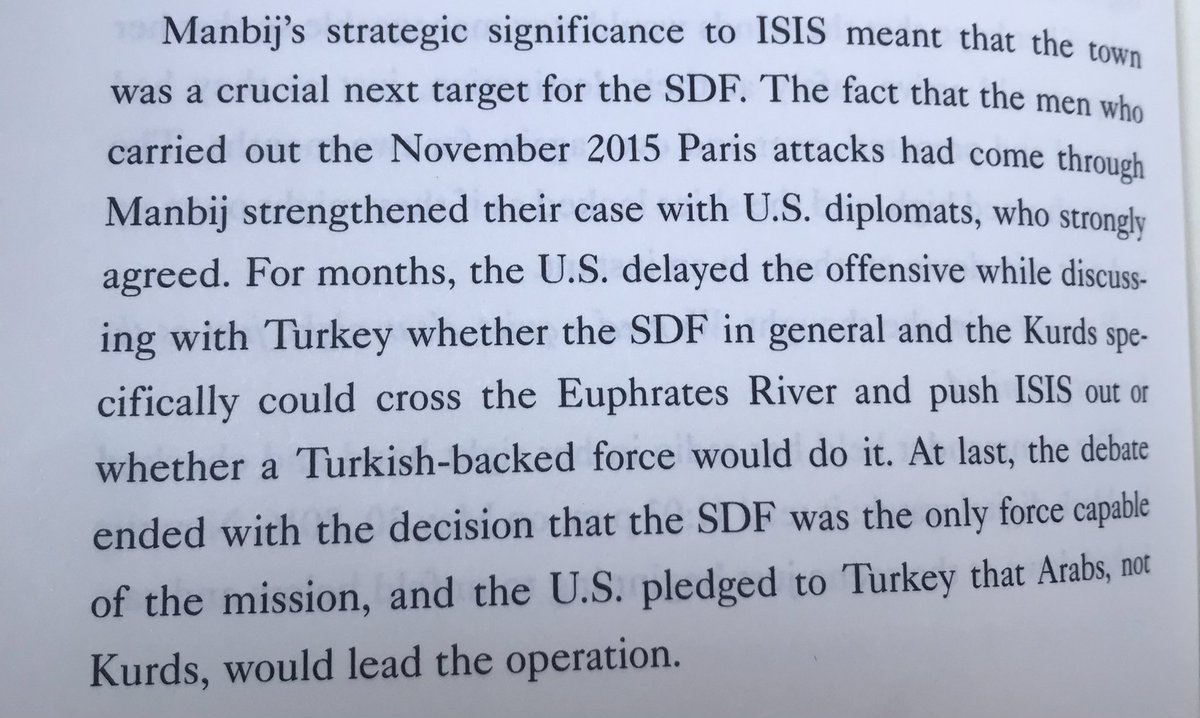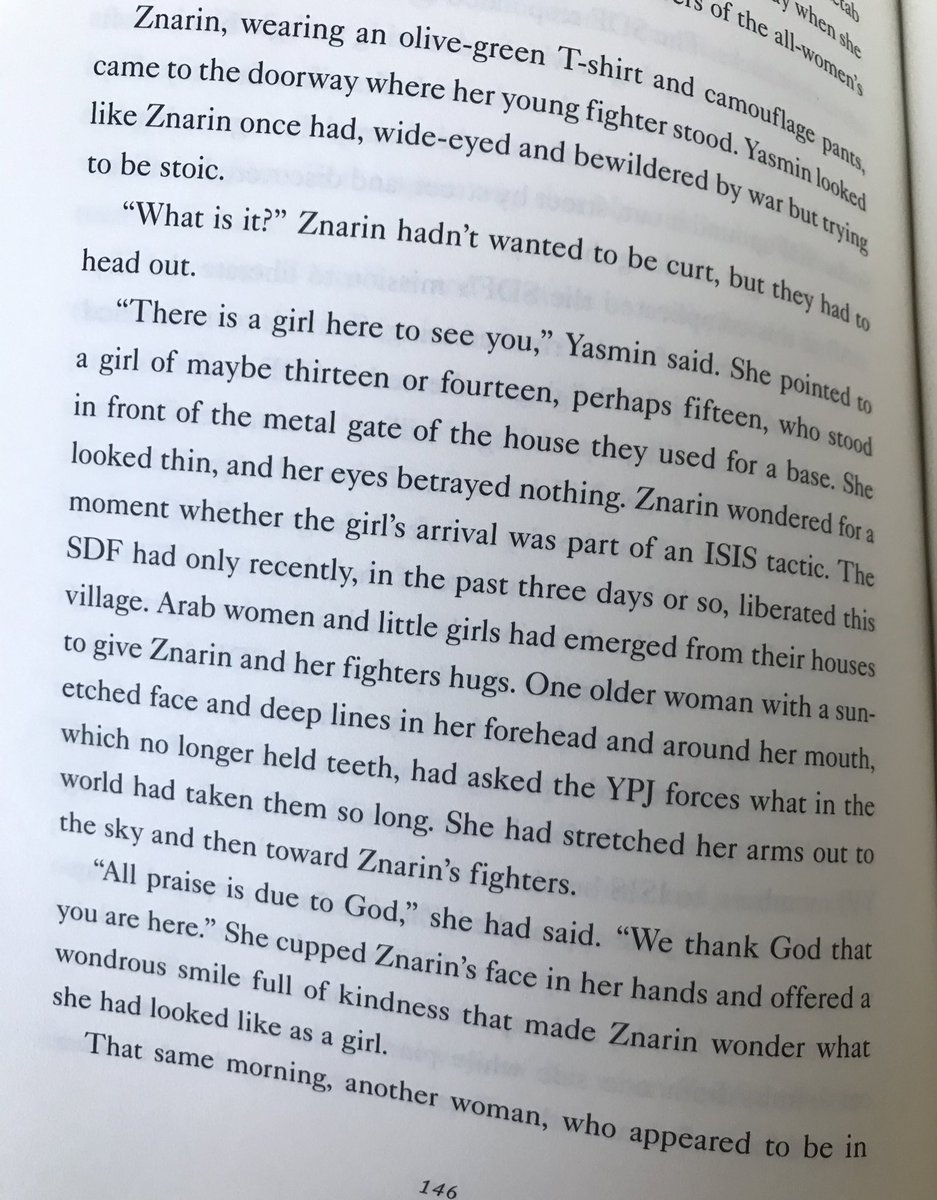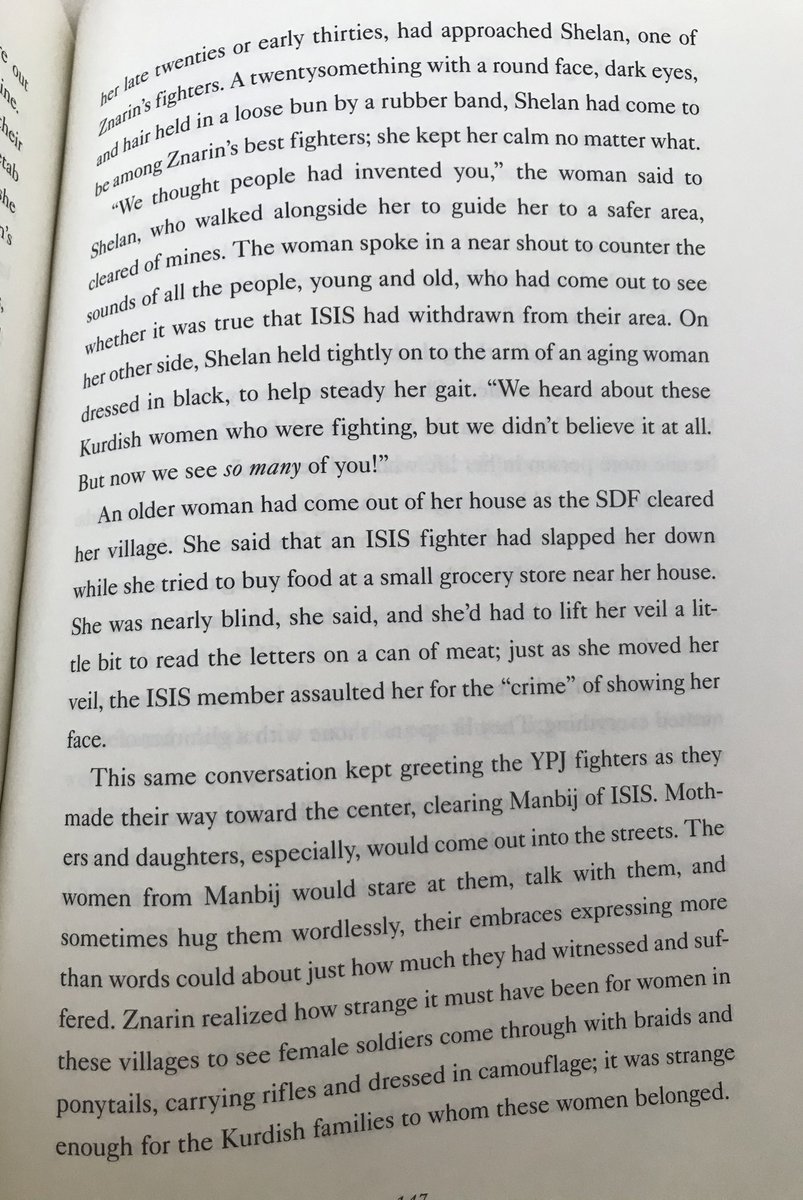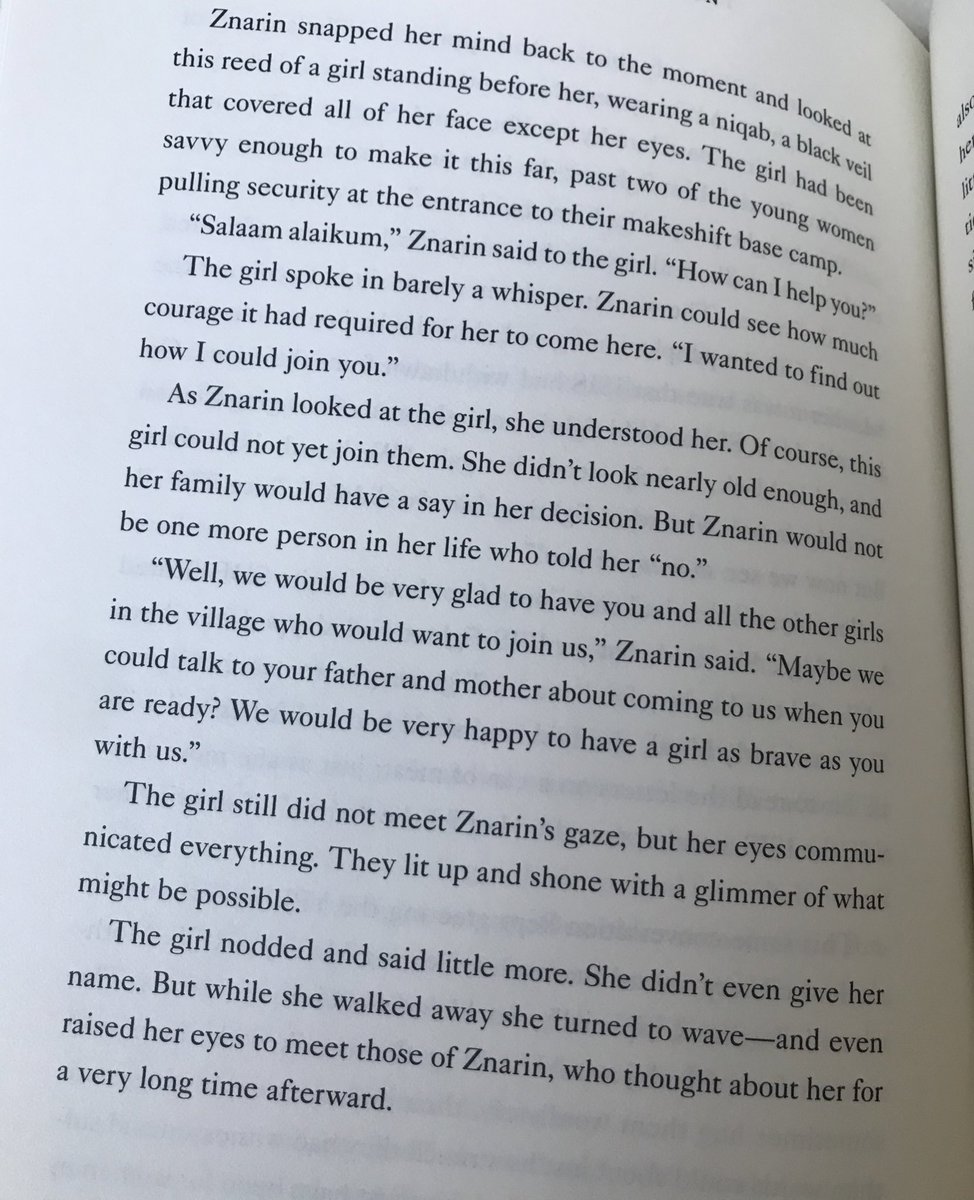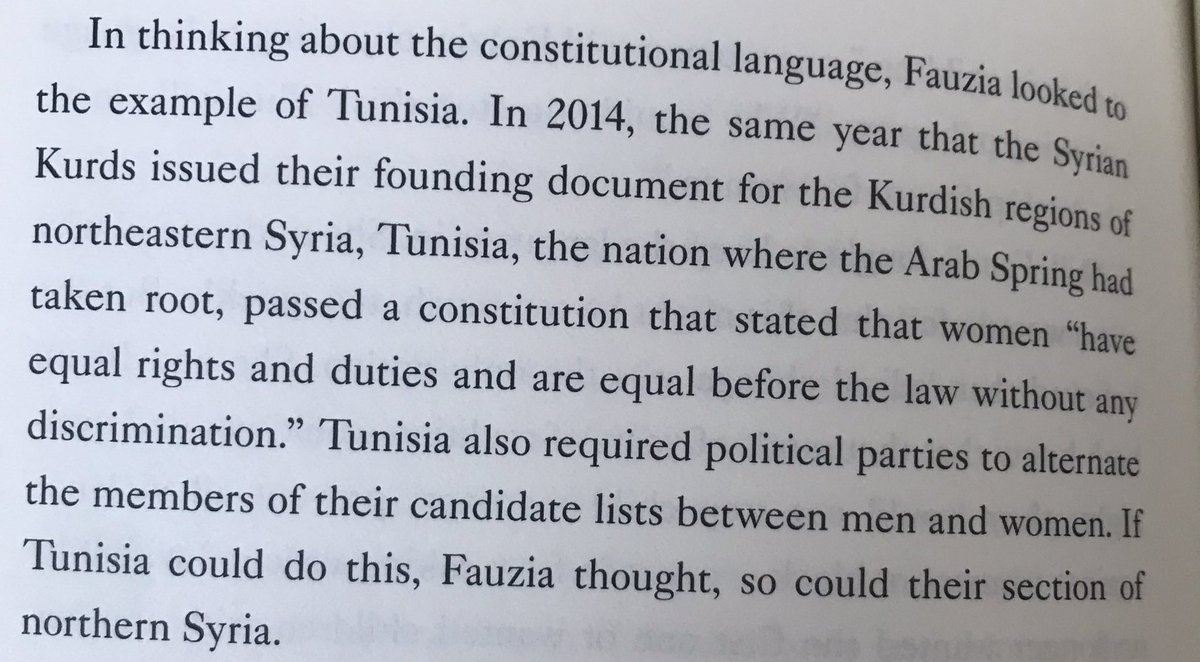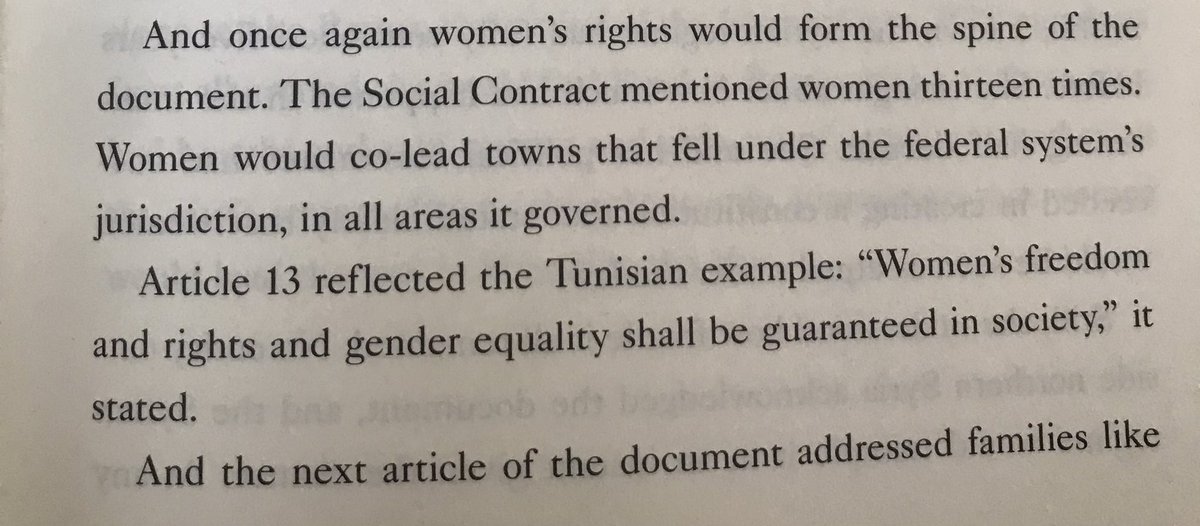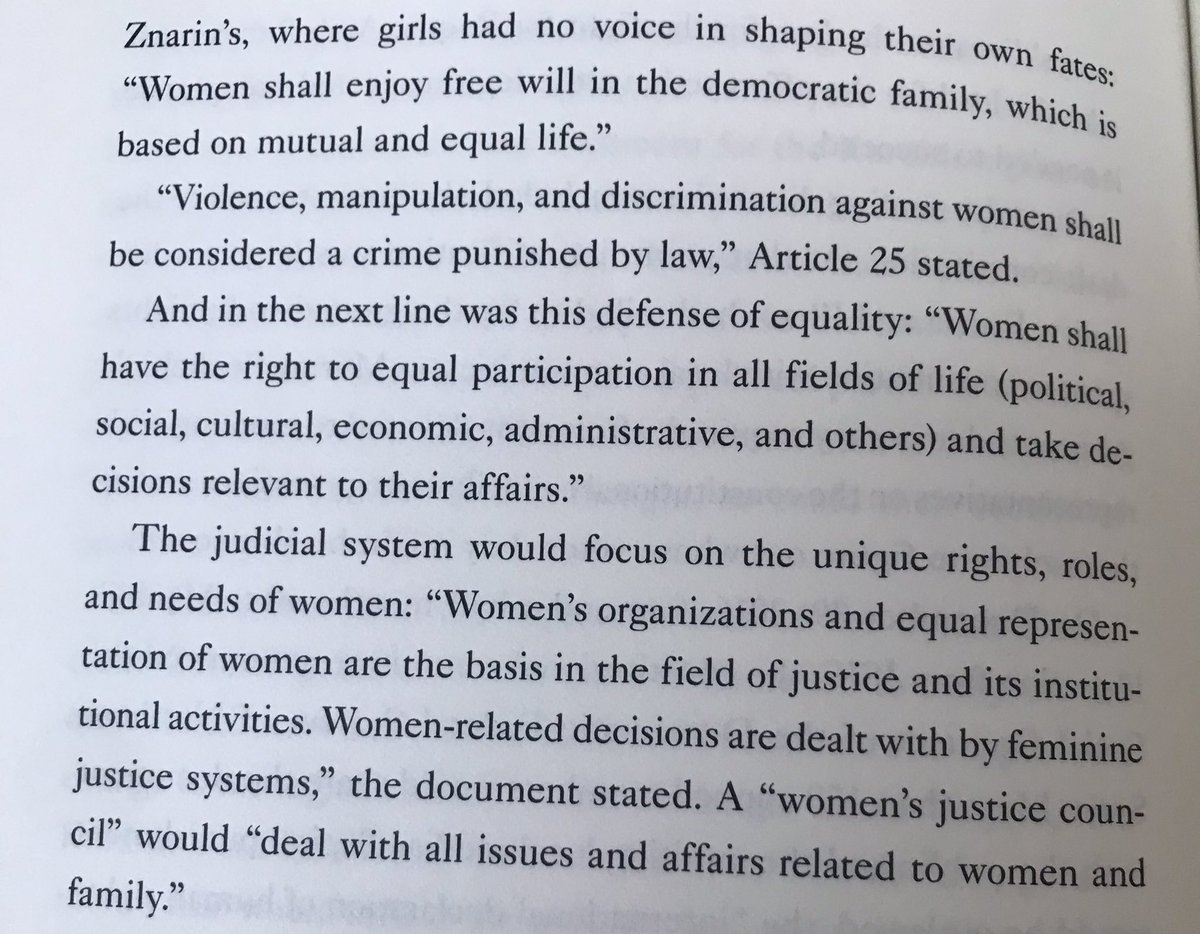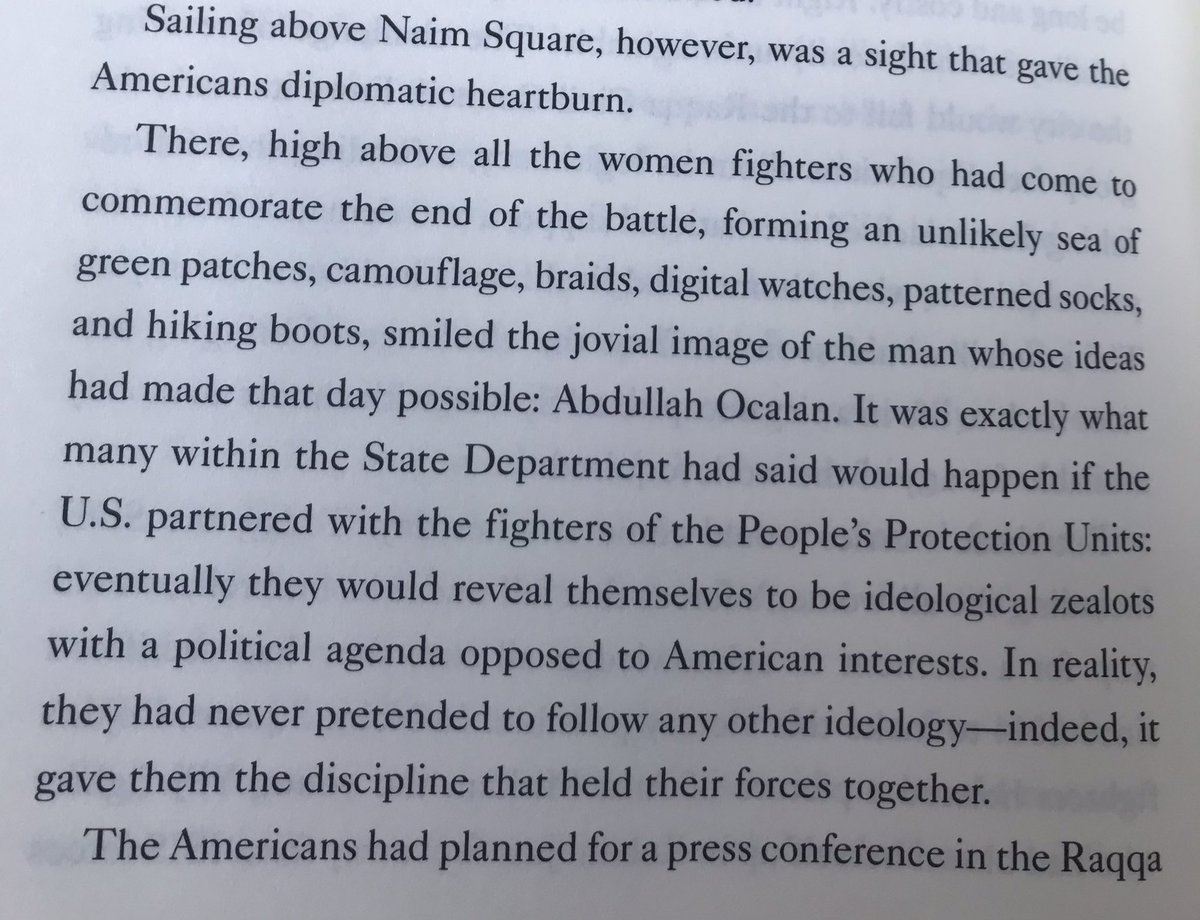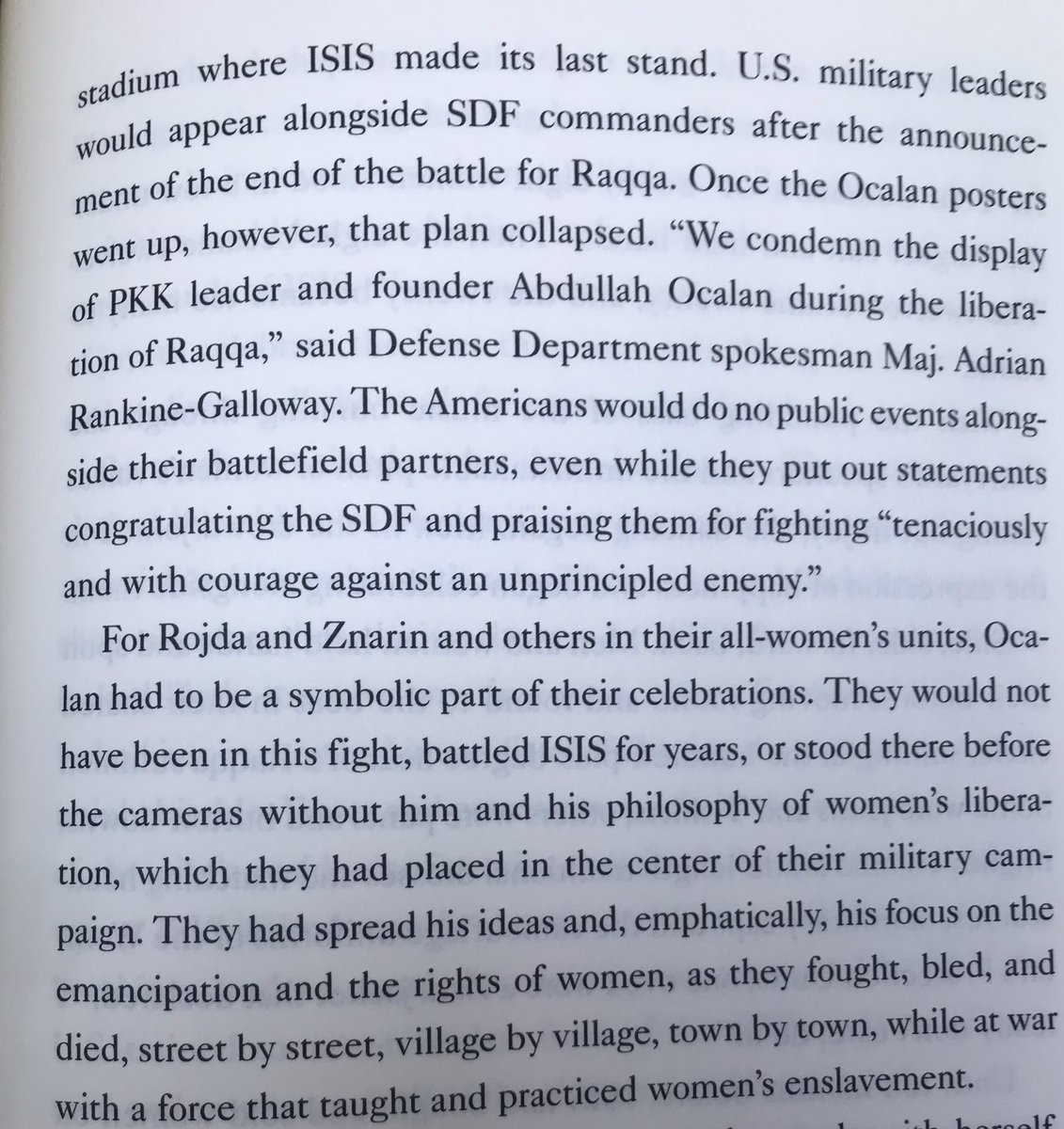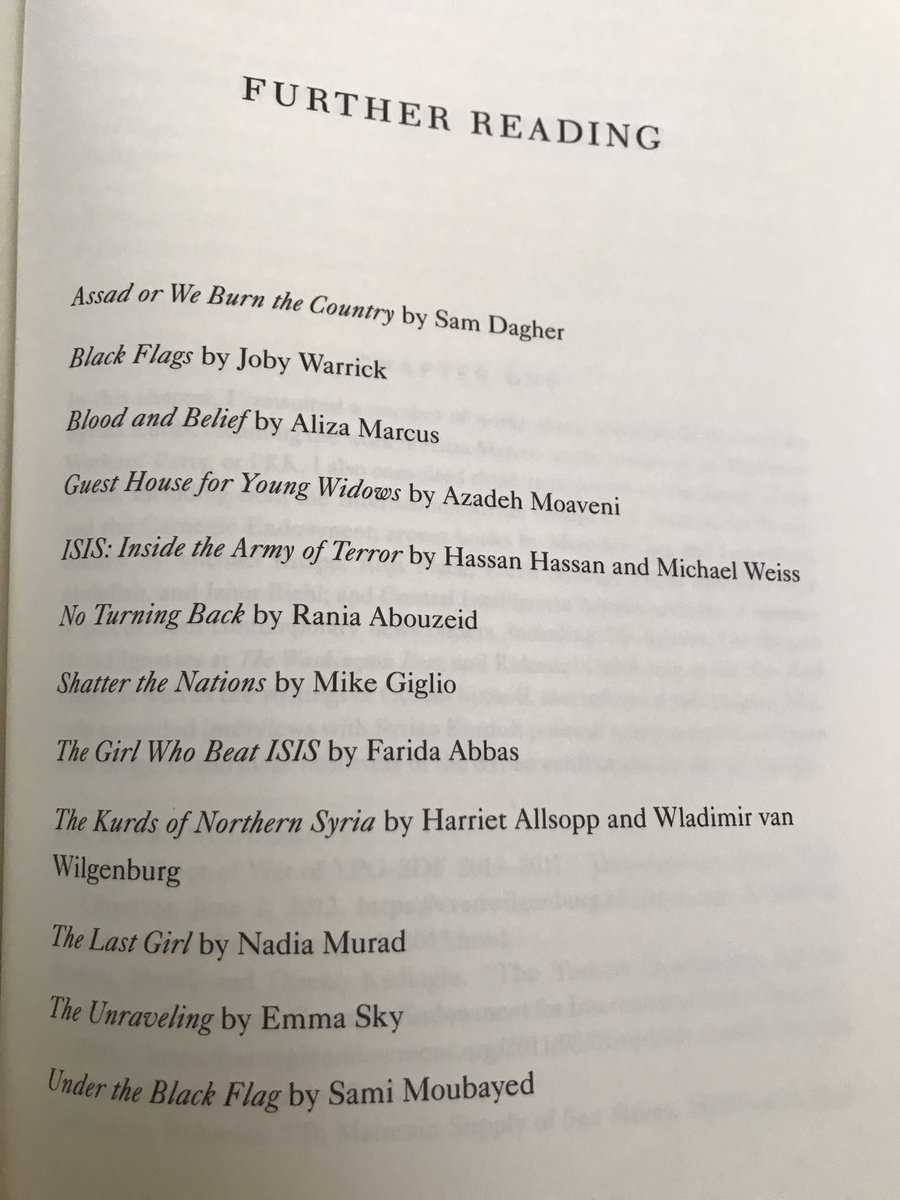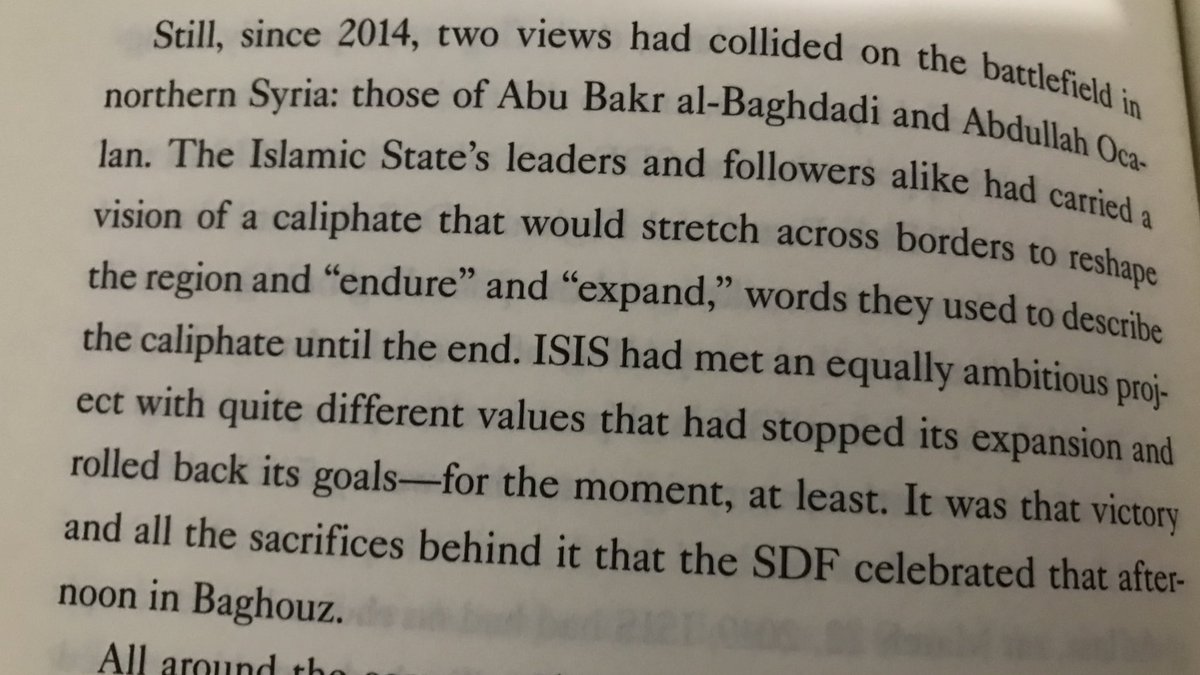Here’s how Ocalan and PKK are introduced. Straightforward and fair enough.
The story about his sister’s marriage is something that comes up in his writings about his understanding of women’s oppression, so that suggests the author has looked into those in some detail.
The story about his sister’s marriage is something that comes up in his writings about his understanding of women’s oppression, so that suggests the author has looked into those in some detail.
This is also straightforward and fair.
I wonder if the history of how women in the movement made the adoption of this ideology possible will be brought up anywhere in the book, as that story has parallels to mainstreaming the same ideas in NES.
I wonder if the history of how women in the movement made the adoption of this ideology possible will be brought up anywhere in the book, as that story has parallels to mainstreaming the same ideas in NES.
And the first mention of the civilian side of the the women’s movement— one of the YPJ figures the book follows started out as an activist with Kongreya Star.
This is a great example of their work empowering women who had never before been able to make choices about their lives.
This is a great example of their work empowering women who had never before been able to make choices about their lives.
Making this point—that these laws and institutions aren’t just more progressive than the rest of the region is on women’s rights, but more progressive than virtually all of the world is—is important. Especially for a Western audience.
This operation was...notably not just the YPG and YPJ, though their participation was important and notable. Why leave out PKK involvement?
None other than our now-Secretary of State Blinken appeared to agree with Erdogan that Kobane would fall. Wonder how he feels about that comment today.
Much of the book tells stories from the battlefield in Kobane. It’s always awe-inspiring, for lack of other words, to think of how steep the odds were and how YPG and YPJ prevailed anyway. Will be good for a broader audience not focused on Syria or Kurds to read these accounts.
First mention of HSNB— and of any women from non-Kurdish communities in North and East Syria who joined AANES and SDF structures.
Hope it will discuss more how the women’s movement has expanded across religious and ethnic groups.
Hope it will discuss more how the women’s movement has expanded across religious and ethnic groups.
Turkey delaying the Manbij operation out of irrational fear of the SDF likely directly cost civilian lives in Europe. This needs to be brought up more.
On how Arab women and girls in Manbij responded to the YPJ. Some thought it wasn’t possible that they could even exist until they saw them in real life.
Apparently, the inclusion of women’s equality in the 2014 Tunisian constitution helped women in NES successfully argue for that language in their 2016 Social Contract!
Interesting example of them connecting their struggle to that of women in Arab Spring movements.
Interesting example of them connecting their struggle to that of women in Arab Spring movements.
One thing this book does well is concisely lay out theoretical and political principles the women’s movement in NES is based on—see the explanation of the Social Contract here. A great starting point for a reader who wants to learn more.
Pleasantly surprised by this very fair description of why the Ocalan flag was raised in Raqqa and why it mattered. Glad the author made a point of recognizing how his political philosophy underpinned the defeat of ISIS, regardless of US disapproval.
The book skips straight from Raqqa to Baghouz with no discussion of Afrin, the city where the first YPJ unit was founded and where the first YPJ martyr was from—and where all the advances the book describes were destroyed by Turkey. Seems an odd decision to leave that out.
This is quite frankly a questionable “further reading” list for a book about the YPJ.
Blood and Belief and Kurds of Northern Syria make sense. But the rest of these have nothing to do with the armed or civilian women’s movement in NES.
Blood and Belief and Kurds of Northern Syria make sense. But the rest of these have nothing to do with the armed or civilian women’s movement in NES.
This is a very perceptive characterization. The Kurdish freedom movement taking on ISIS was indeed a battle between two opposite universalist forces. People who believe in the liberation of all humanity defeated people who wanted to plunge all humanity back into the Dark Ages.

 Read on Twitter
Read on Twitter